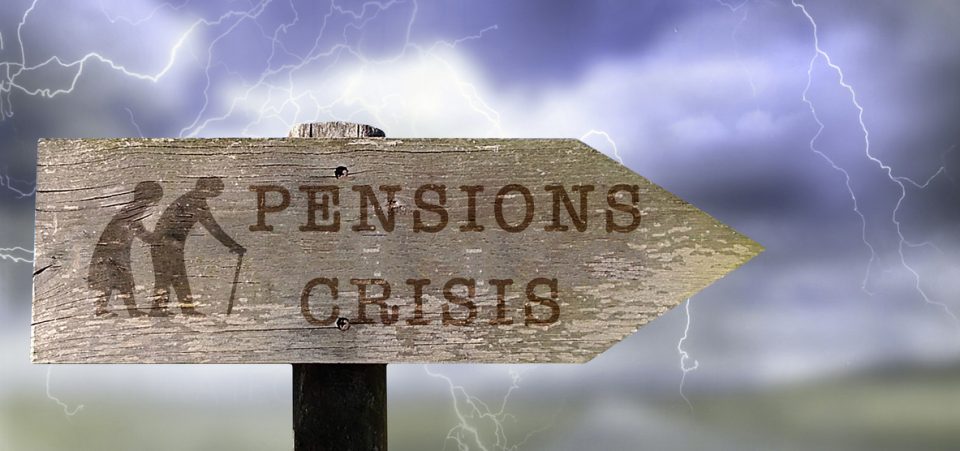Underfunded Pension Funds Call for a Retirement Crisis Ahead
There’s a looming retirement crisis in the United States, and it could have dire consequences. Don’t ignore it.
While the mainstream media talks about the “hot” technology stocks and cryptocurrencies, the retirements of many Americans could be at risk.
Pension funds administered by cities and states across the U.S. are severely underfunded. In other words, the pension funds don’t have enough money to pay the future retirees.
You really have to ask what will happen next.
Here’s the thing: cities and states are scrambling to fix this problem. But the solutions may not be effective enough.
We are currently seeing a new trend. To fight the pension crisis, cities and states are cutting benefits and borrowing money.
Look at Colorado, Minnesota, and Illinois, for example. These states have signed legislation that has increased contributions to their pension funds, cut public employees’ retirement benefits, and/or have taken other measures to reduce the unfunded pension liabilities.
Illinois pension funds have unfunded liabilities of $129.0 billion.
The Colorado Public Employees’ Retirement Association pension system has underfunded liabilities of $32.0 billion. (Source: “Putting PERA on a path to prosperity,” The Denver Post, June 15, 2018.)
Minnesota’s state employee pension fund is underfunded by $16.2 billion. (Source: “Pension bill was 2018 bright spot for Minnesota Legislature,” Star Tribune, June 6, 2018.)
One would assume that the actions taken by states like Colorado, Minnesota, and Illinois could do something to solve the retirement crisis for Americans.
Wrong. The situation is so bad that these actions are not enough.
Fitch Ratings, Ltd., a credit rating agency, recently said regarding these changes that it “believes funding improvement for many major pensions may not materialize any time soon.” The credit rating agency added, “Pensions in general still face an uphill climb.” (Source: “U.S. state reforms not enough to solve pension problem -Fitch,” Reuters, June 21, 2018.)
Go Back a Little…
How did the pension funds get into this mess? It was a mixture of things.
At first, the housing market was booming, so cities and states promised higher benefits. This was mainly because they were getting higher tax revenues.
Then the U.S. economy went through a housing market crash and a financial crisis. Tax revenues declined and so did the contributions by states and cities to their pension funds.
On top of this, we had a massive stock market crash and low interest rates. As a result, pension funds struggled to generate higher returns on the money they had.
What’s Next?
Over the past few years, markets have been good, so the pension fund situation has gotten somewhat better. However, don’t be shocked if this all takes a turn for the worse once again.
Why? A stock market crash could be ahead, and the bond market (pension funds usually hold a lot of bonds) could face a lot of headwinds. This could increase pension liabilities further and make the retirement crisis much bigger.
This all could be very bad.
Dear reader, this may sound like a bold statement, but we may not be too far away from a point where we have a full-blown retirement crisis. Don’t take this lightly.






